Future of Retail
Virtual reality explores the future of retail in a technology-driven world.
- Sydney, Australia
- 1kattendees
The Adobe Future of Retail virtual reality experience is a design experiment that explores how emerging technologies could transform the way we shop. Created in partnership with Adobe in Sydney, experience demonstrates how technologies like virtual reality and artificial intelligence could expand the shopping experience, where holographic projections, immersive promotions, and real-time recommendations, could help bridge the gap between traditional and online shopping.
A design experiment
The Idea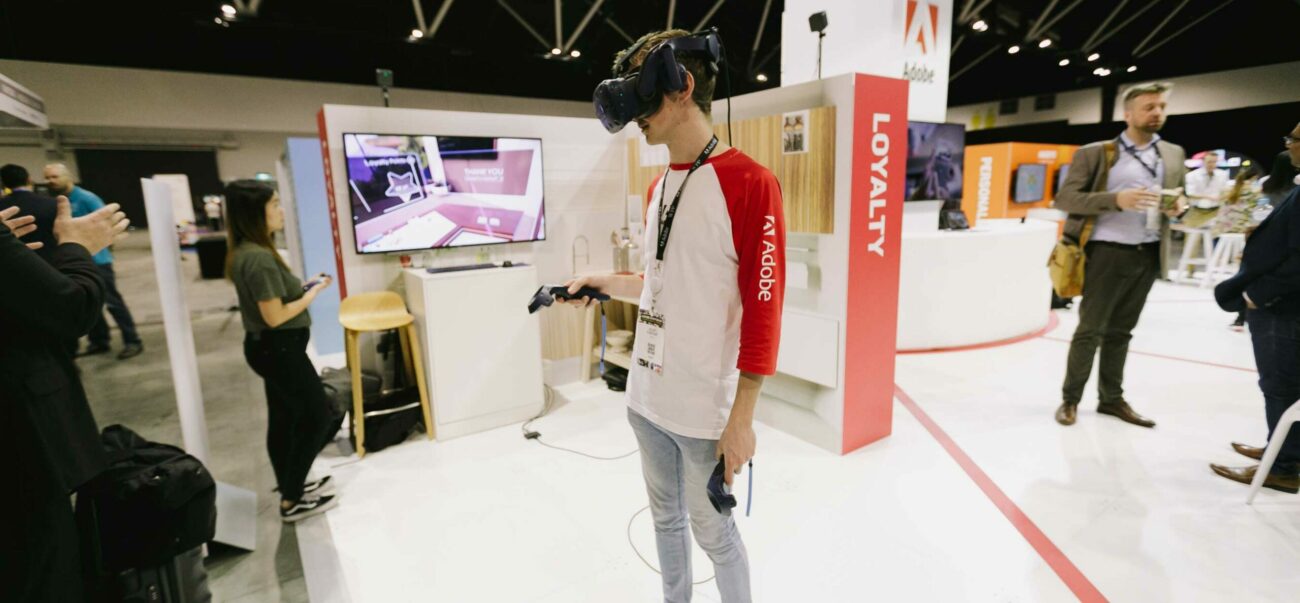
As a digital agency, we designed Adobe Future of Retail to help audiences consider how emerging technologies could transform the way we shop. Virtual reality in particular, the experience suggests, could create a kind of hybrid retail process that brings together the smart convenience of online shopping and the physical immediacy of bricks-and-mortar stores.
The power of technology
Overall ExperienceWhile it’s easy to see how technologies like artificial intelligence are already changing the way we shop, it can be harder to imagine the impact of less straightforward innovations such as virtual reality. Adobe Future of Retail aimed to demonstrate that these technologies have much to offer consumers and retailers alike.
Capitalising on the natural affordances of virtual reality, the experience demonstrated how emerging technologies could bridge the gap between traditional and online shopping. Through holographic projections, immersive promotions and real-time recommendations, we imagined a more enjoyable and effective retail experience.
Designing a believable future
Art DirectionThe authenticity of the virtual world within Adobe Future of Retail was crucial to the experience’s success. Every environment within the experience needed to present a believable version of the future, one that audiences could readily and easily immerse themselves within.
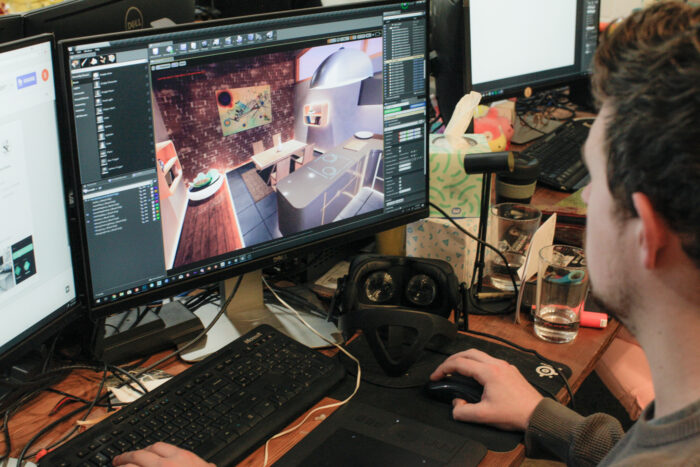
From the very first moment audiences stepped inside the experience, carefully considered design decisions and high quality real time rendering came together to establish a tone of the not-too-distant future. While modern architectural stylings created familiar, comfortable environments, the subtle inclusion of futuristic twists – from concealed lighting to floating projections – helped audiences imagine what the future might look like.

Customisable shopping experience
Virtual RealityThe virtual supermarket, accessed through a swirling portal in the apartment’s fridge, continues this modern architectural aesthetic. Here, white walls, steel beams and wooden boxes create a sense of clean comfort, bringing together the convenience and accessibility of online shopping and the physicality of traditional stores.
The vast, expansive windows also hinted at another potential benefit of virtual reality shopping: the customisable nature of the store itself. This simple decision helped audiences think about how virtual reality could help enhance the retail experience, giving them the chance to complete mundane tasks in immersive, dream-like landscapes.
Meaningful promotions
Immersive MarketingAdobe Future of Retail explores another possibility of virtual reality retail through the Mango Farm. Accessed through a portal in the supermarket, this immersive environment served as a memorable experience and a powerful advertisement.
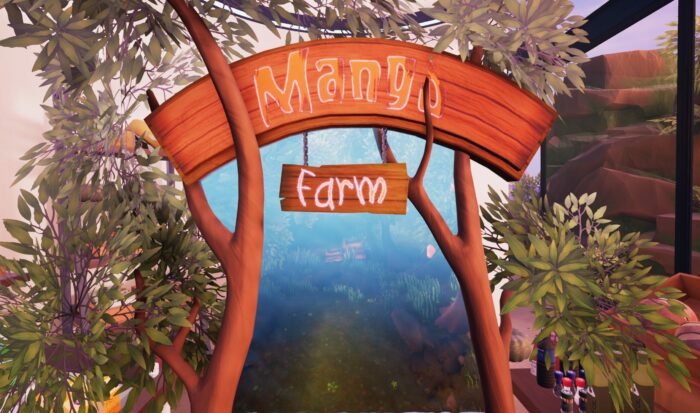
Taking today’s supermarket advertising to the next level, the Mango Farm encouraged consumers to discover the story behind their food for themselves. Here, shoppers were given a memorable, exploratory experience while retailers tapped into the powerful decision-making motivator of emotion.
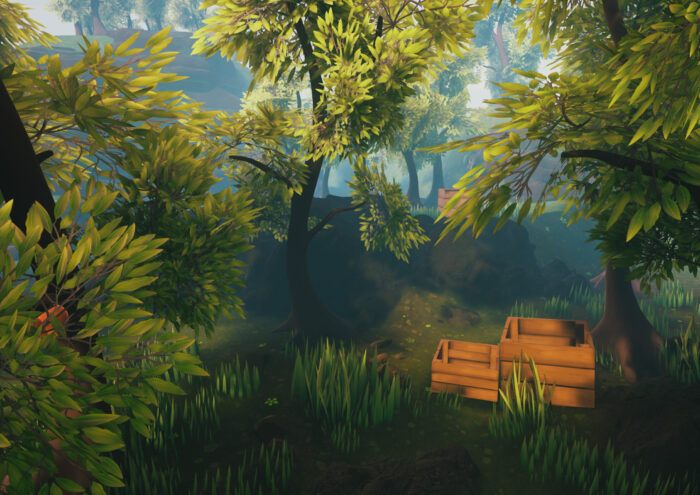
Holographic data visualisation
Holograms + DataWhile the Future of Retail supermarket retains the physicality of real world stores, it also prioritises the advantages of artificial intelligence. Making data easily accessible to shoppers through simply designed holographic projections, the experience showed how virtual reality could simultaneously streamline traditional retail and humanise online shopping.
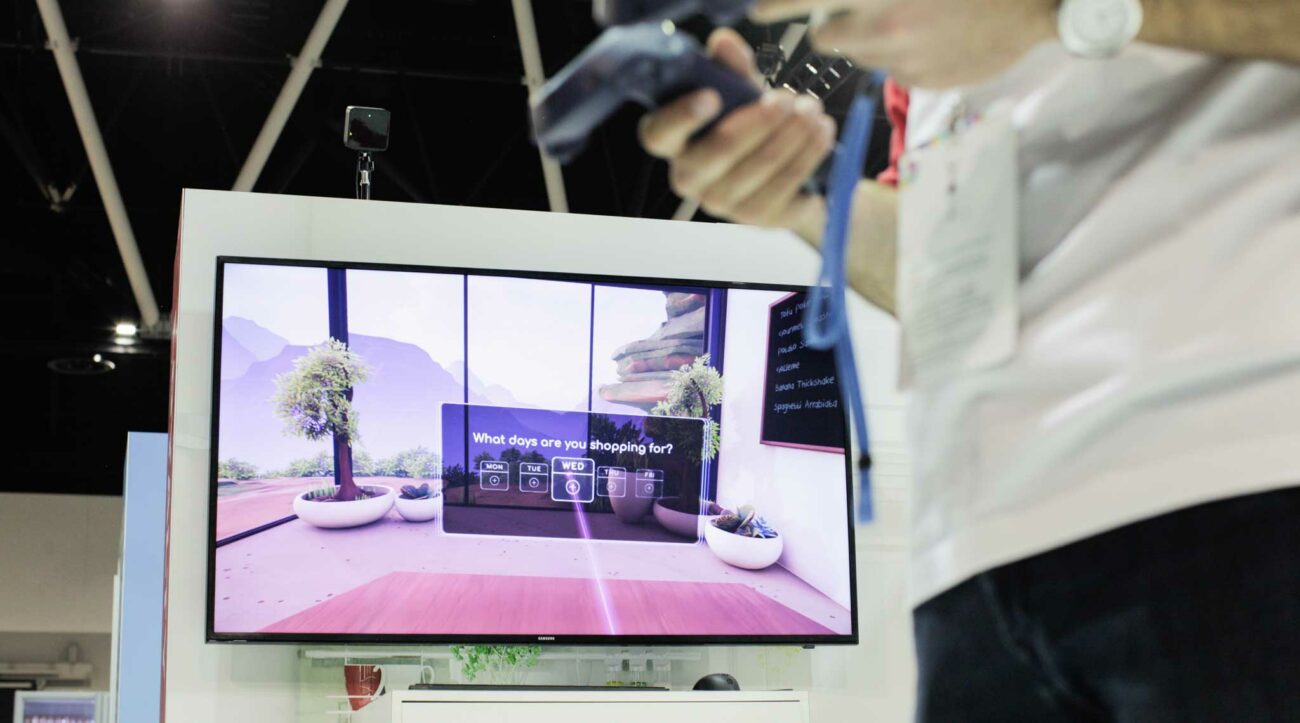
The visual nature of these holographic screens is particularly relevant. Unlike the typically invisible artificial intelligence systems of today, data in Adobe Future of Retail is made visible to customers, encouraging them to use the power of analytics as they shop. The way that these data visualisations are tied to physical objects further improves their comprehensibility, making information easy for shoppers to digest.
Real-time recommendations
Artificial Intelligence
To further demonstrate this approach to data accessibility, we built a functioning intelligence system – ‘Recommended Recipes’. These personalised recipes were automatically generated throughout the experience according to the audience's pre-entered preferences and the ingredients in their basket. This very simple implementation of AI proves the potential of the technology, along with how it could be integrated into other, more visual innovations like virtual reality.
A thought-provoking activation
Launch + ResultsAdobe Future of Retail was launched during the 2018 Adobe Symposium at Sydney’s International Convention Centre. The project was experienced by over 1,000 convention attendees, including key members of Australian and International media. Since then, the experience has been featured at a number of Adobe events around the world, showcasing the wide potential of virtual reality retail to global audiences.
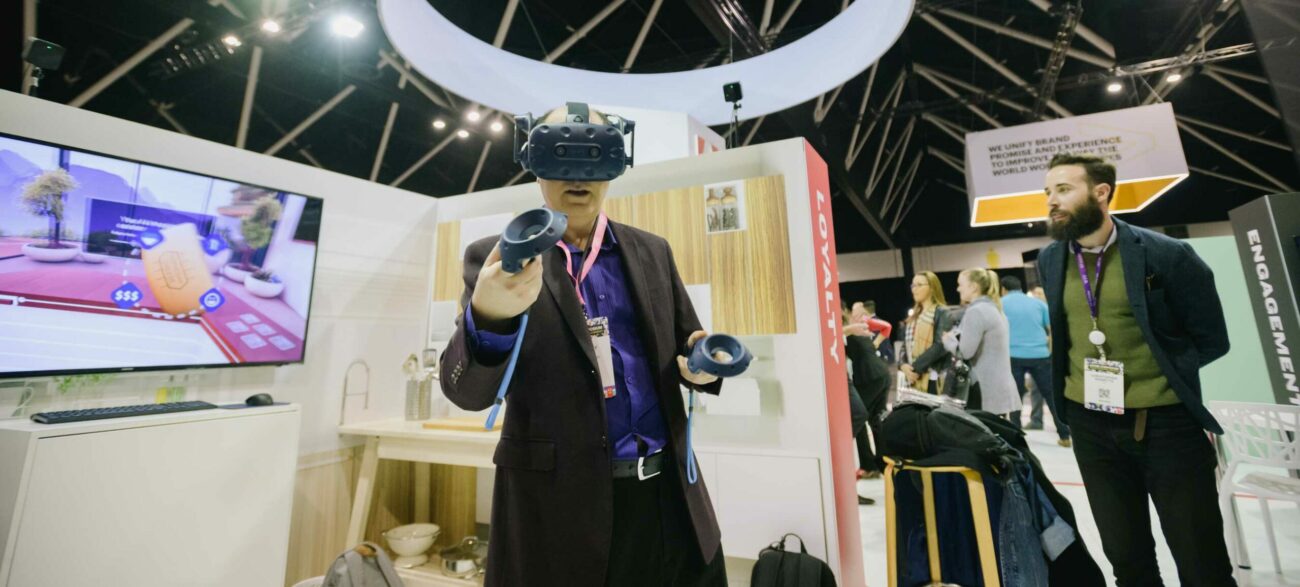
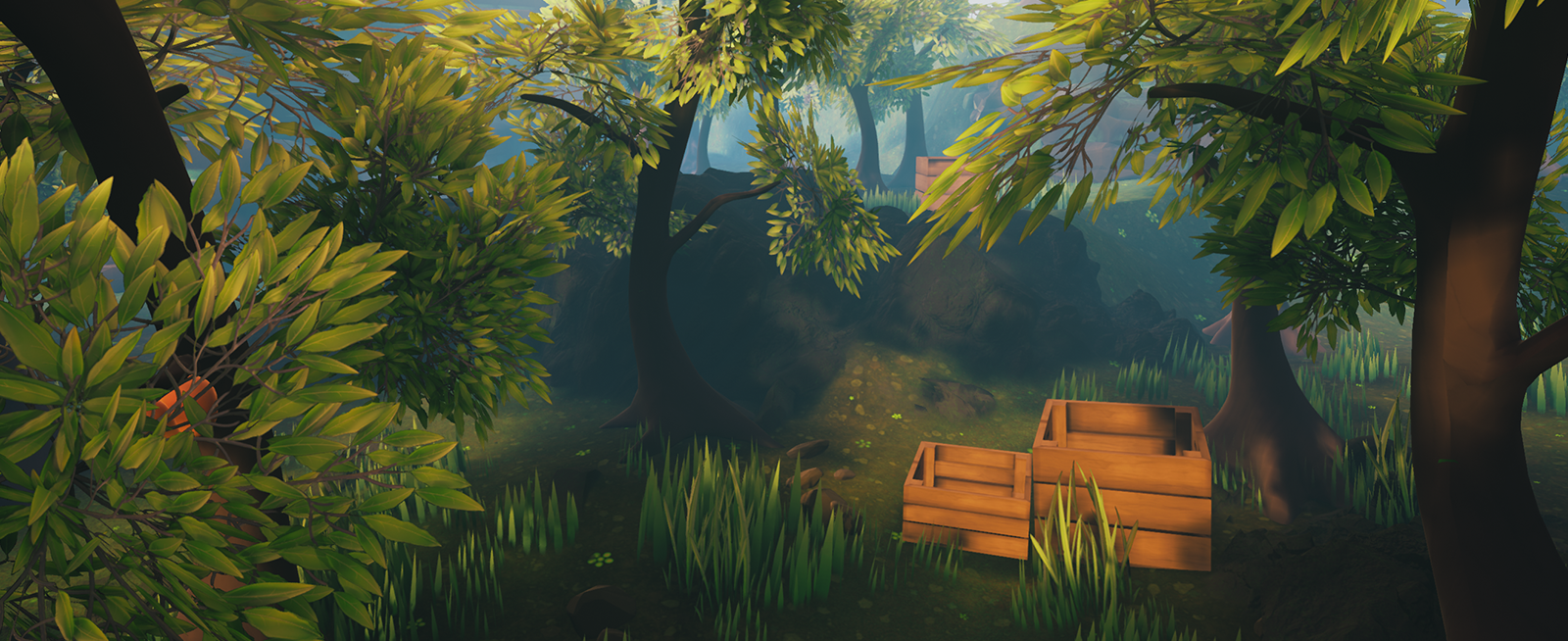
Stay in the loop
Subscribe to our newsletter to receive updates and insights about Future of Retail and other S1T2 projects.





























